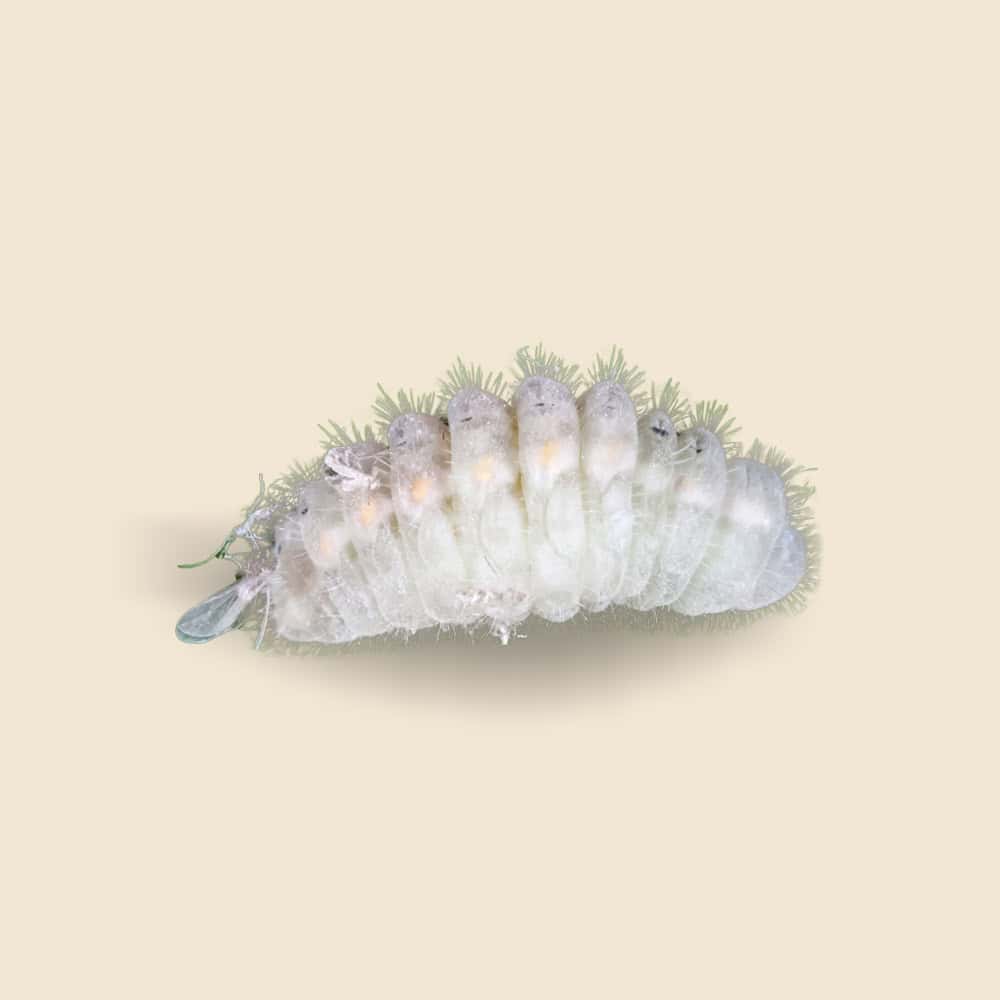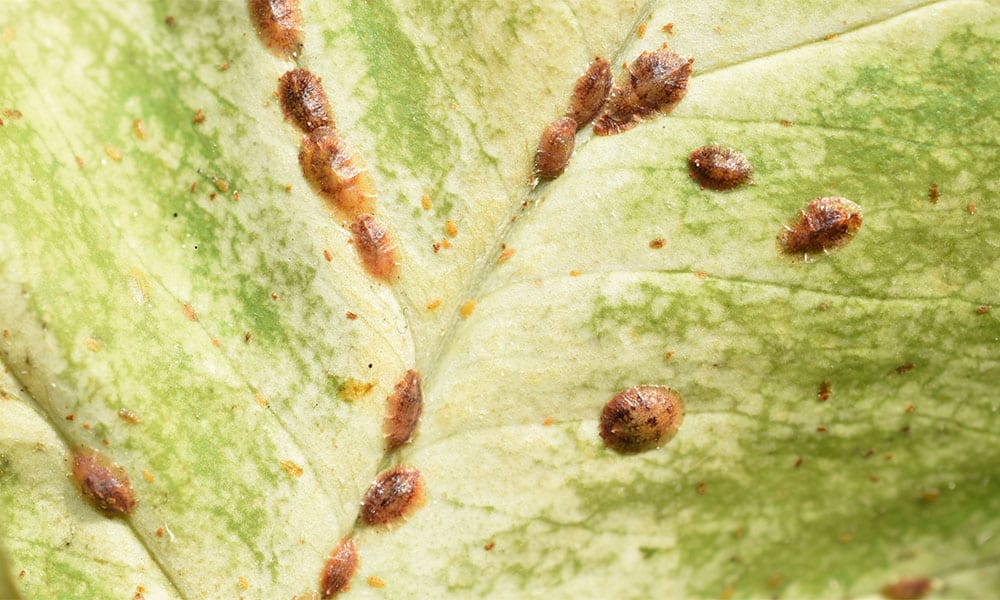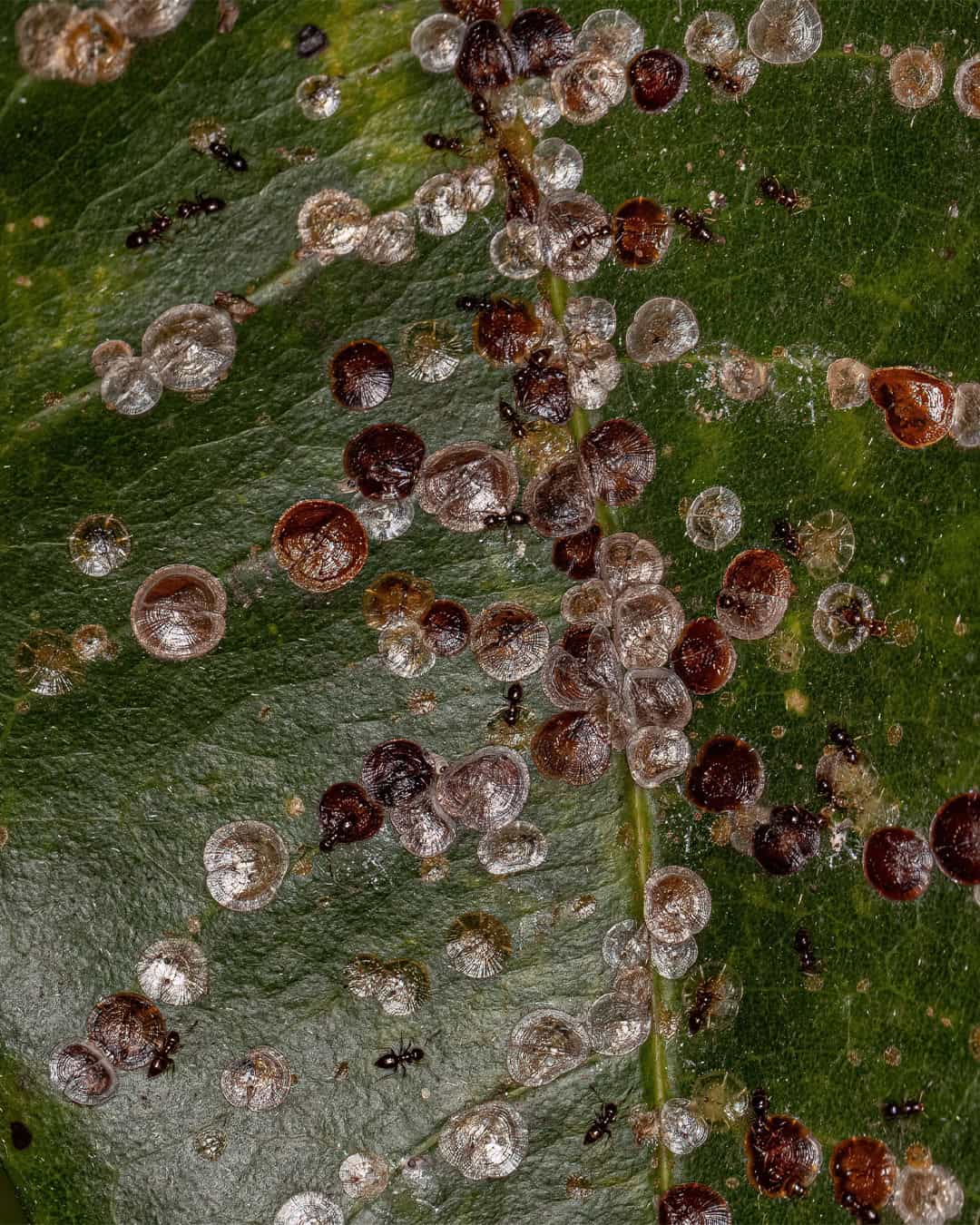Scale Insect Facts & Information
Scale insects, notorious for their sap-sucking behavior, are a major concern for gardeners and homeowners. These pests can weaken plants by draining their nutrients, leading to stunted growth, yellowing leaves, and even plant death if not addressed promptly.

Coccoidea
What You Need To Know About Scale Insects
What do mealybugs look like?
Mealybugs are small, soft-bodied insects covered with a white, powdery, or mealy wax coating. They are typically about 1/8 to 1/4 inch long and may have a slightly elongated, segmented body.
What do mealybugs eat?
Mealybugs feed on plant sap, using their piercing mouthparts to suck fluids from leaves, stems, and roots which can weaken plants and lead to the development of sooty mold due to their honeydew excretions.
What sort of habitat do mealybugs live in?
Mealybugs thrive in warm, moist environments and are commonly found on houseplants, greenhouse plants, and outdoor ornamental plants. They often hide in crevices, leaf axils, and under leaves.
How do mealybugs commonly behave?
Mealybugs are relatively immobile and tend to cluster in groups on plant parts. They can be difficult to detect initially due to their small size and habit of hiding in protected areas. Their presence is often first noticed by the damage they cause to plants.
Did you know this about mealybugs?
Mealybugs can reproduce rapidly, especially in controlled environments like greenhouses. Some species of mealybugs are capable of producing hundreds of offspring in their lifetime. Additionally, mealybugs are known to have a mutualistic relationship with ants, which protect them from predators in exchange for the sweet honeydew they produce.
Understanding Scale Insect Infestations
Understanding scale insect infestations is crucial for effective control. Scale insects attach themselves to plant stems and leaves, forming protective coverings that shield them from predators and environmental conditions. These pests can be difficult to detect in the early stages due to their small size and camouflaging ability. Early intervention is key to preventing severe infestations.While scale insects do not pose direct health risks to humans, they can attract ants and other insects that may create additional problems.Heavy infestations can lead to the decline and death of ornamental plants, shrubs, and trees, resulting in significant financial loss.Scale insects excrete honeydew, which promotes the growth of sooty mold, further damaging plants and reducing their aesthetic value.

How Hearts Handles Scale Insect Treatment
Hearts Pest Management employs an integrated pest management approach to handle scale insect infestations. Our process starts with a thorough inspection to identify the severity of the infestation and the specific species involved. We then develop a customized treatment plan that may include eco-friendly solutions, ensuring the health and safety of your plants.
Scale Insect Inspection
Scale Insect Treatment
Scale Insect Prevention
Educational Resources

Think You Might Have a Scale Insect Infestation?
At Hearts Pest Control, we understand the challenges associated with Scale Insect infestations and are here to provide professional solutions tailored to your needs. Flourishing in warm and humid climates, they are prevalent in many regions, including San Diego County, Orange County, and Los Angeles County.